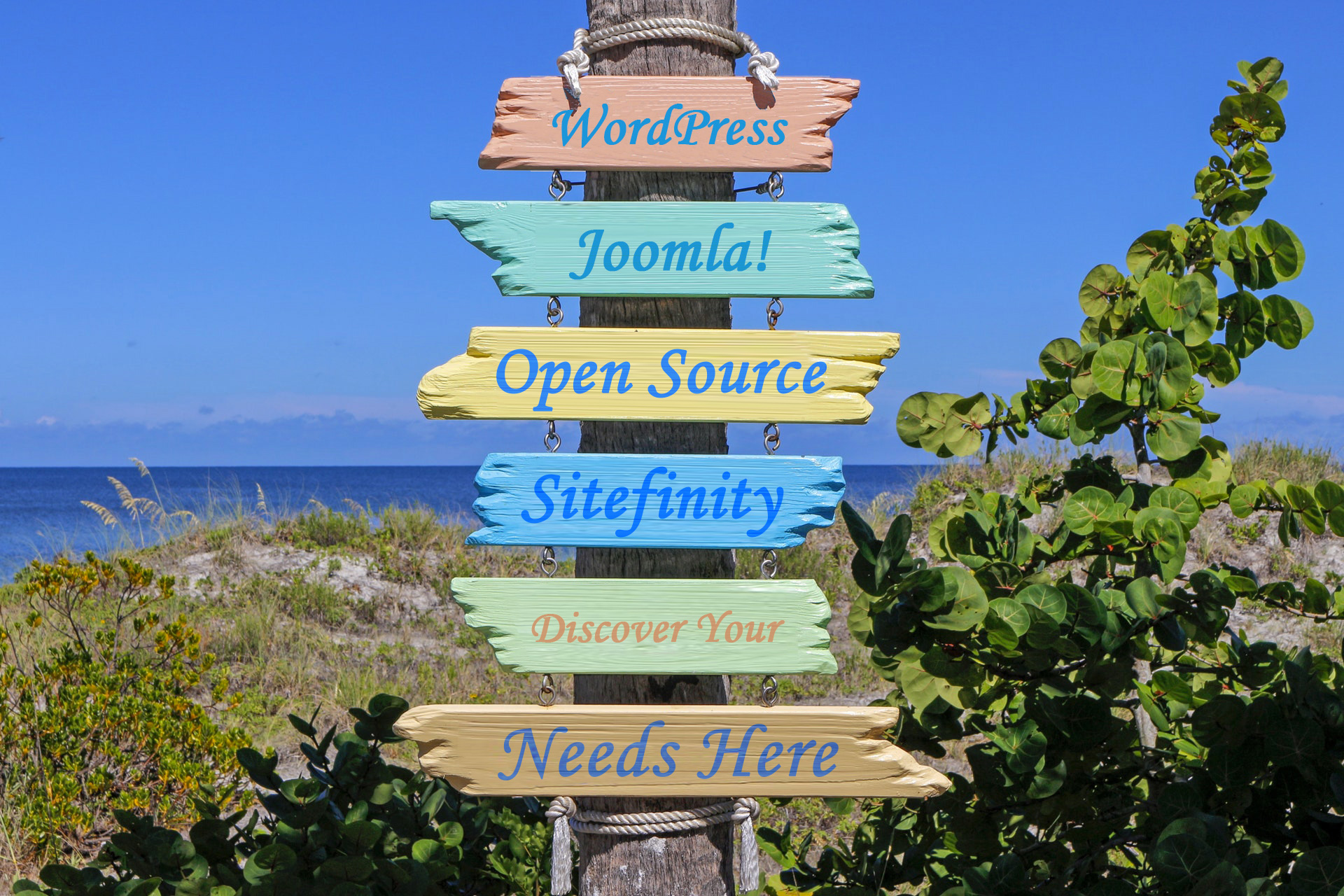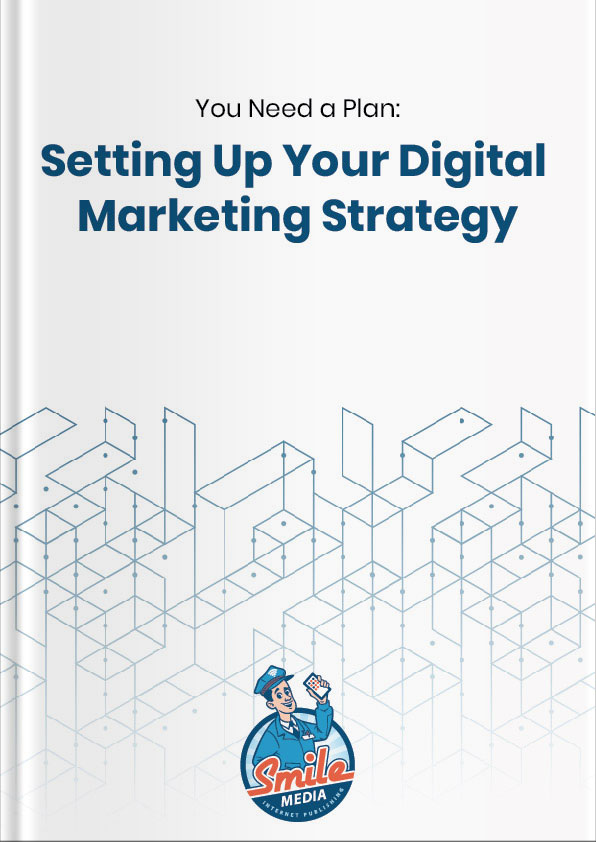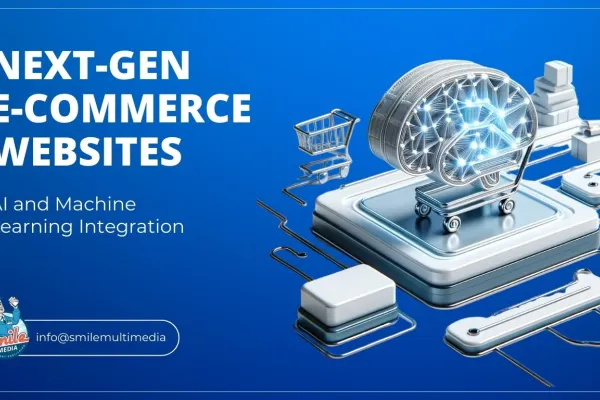With the world of web design and development in a constant state of change, it almost feels impossible to keep up with website best practices. It’s as if you’re always one step behind. What’s best for your website and business today, could easily change tomorrow, and again the day after that.
One way to ensure that your website can grow and change as your business does, is to choose the right content management system (CMS) for your business. Why is this so important? Because your CMS will ultimately be the place where all of your website content will live. It will be the central hub from which you can develop, manage, edit, publish and store every piece of content related to your business.
Who has the time or money to constantly be changing their website platform from one solution to another? If you choose right the first time, you won’t have to worry about having to update your CMS down the road.
Choosing the Right CMS
When it comes time to refresh or redesign your website, choosing a content management system can be overwhelming. With so many options available, it’s important to thoroughly research solutions, so you can choose the one that’s best for your business. Open source CMS solutions can be particularly appealing due to their affordability, but in the long run, can an open source platform provide the right solutions to meet your business needs as it grows and evolves?
Let’s explore the differences between open source CMS solutions and one particular proprietary CMS Solution – Sitefinity. While there are pros and cons to each solution, your ultimate choice should be based on your specific business goals and challenges.
Open Source vs. Proprietary CMS
There are several differences between open source and proprietary CMS solutions. The following are what those considering a new CMS should consider carefully:
Ownership
One of the main differences between a proprietary CMS and an open source solution is who owns or manages the system. With an open source CMS, the system is built and modified by a group of web developers, while a proprietary CMS is owned and developed by one company, which licenses its use to businesses for a fee.
Investment
Therefore, while most open source CMS solutions are available for free, or for a nominal fee, a proprietary CMS will require a larger upfront investment. There is more to choosing a CMS than price alone. Many businesses agree that the investment in a proprietary solution is typically worth it in the long run, for a variety of reasons:
1. Flexibility
While it’s true that open source CMS solutions can be modified, and customized to meet individual business needs, the extent of flexibility offered is somewhat limited. With a proprietary CMS, on the other hand, the design of the system can be customized to meet highly specific design, functionality and usability requirements.
2. Functionality
The functionality of a proprietary CMS solution is much more robust and sophisticated than with an open source CMS. Because the solution owner is invested financially in continuing to improve the product and meet customer demands, they are able to customize the system faster, and with fewer issues.
3. Usability
Because open source CMS applications are designed by technical web developers for like-minded individuals. Unfortunately, many people using these solutions may not have the level of knowledge required to use them with ease. Proprietary systems, on the other hand, tend to be much more intuitive in navigation, functionality and overall usability.
4. Security
With open source CMS solutions, the source code is entirely exposed and therefore vulnerable to security risks. While precautions are taken to increase the security of open source solutions, the risks remain higher than with a proprietary CMS, where source code is well-protected, and security best practices are followed throughout development.
5. Support
While open source software does provide an extensive support system, it is based on a group of volunteer web developers. Therefore, bugs, concerns, and questions may not be answered in a timely manner, which can be extremely frustrating to the user. Proprietary solutions typically come with dedicated support teams, in addition to training materials, regular updates, and much more.
While your initial investment may be higher with a proprietary CMS, your long-term return on investment has the potential to be much greater.
Sitefinity CMS
Sitefinity CMS offers a solution to all of the above factors, and more. The result is a highly productive CMS platform with plenty of room to expand as your business grows. More specifically, Sitefinity offers the following benefits compared with open source CMS solutions:
1. Easy Integration
The platform is based on Microsoft .NET technology, and is written in the C# programming language; however, it also works with any of the programming languages that the .NET Framework supports. This makes it easy to integrate with a variety of Microsoft product technology, and easy to use, especially for those familiar with the fundamentals of the Microsoft .NET Framework.
2. Simple and Cost Effective Deployment
With in-depth and easy to follow installation documentation available, installing and deploying Sitefinity CMS is an easy process, no matter how tech savvy a user may be. The process is significantly faster than with open source solutions, and the installation costs are significantly lower as a result.
3. Compliance and Consistency
Sitefinity is compatible across all browsers, as well as being fully XHTML and W3C compliant. The proprietary CMS uses Telerik RadEditor for its HTML (WYSIWYG) editor, which is the most powerful HTML editor thus far, with an expansive list of features. Sitefinity is also compliant with Section 508 Accessibility Standards of the United States Government, a program aimed at improving overall website accessibility.
4. Exceptional Technical Support
The Sitefinity product development team provides dedicated and timely support to customers, via a highly efficient online ticketing system. In addition, new features and product enhancements are released regularly, helping to maximize functionality, without interfering with existing customization.
Making a Choice
No one can tell you what’s best for your business. If you are a small business, without plans to expand, an open source CMS may offer all of the functionality and customizability that your business requires. However, if your business is looking to expand and evolve to meet ever-changing market demands, you’ll need a platform to support your goals and growth with you. In this case, a more sophisticated and reliable solution – such as a proprietary CMS like Sitefinity – would be well worth the investment.
Do you need assistance with Sitefinity website development? SMILE media can help. Contact us today for a free quote.










